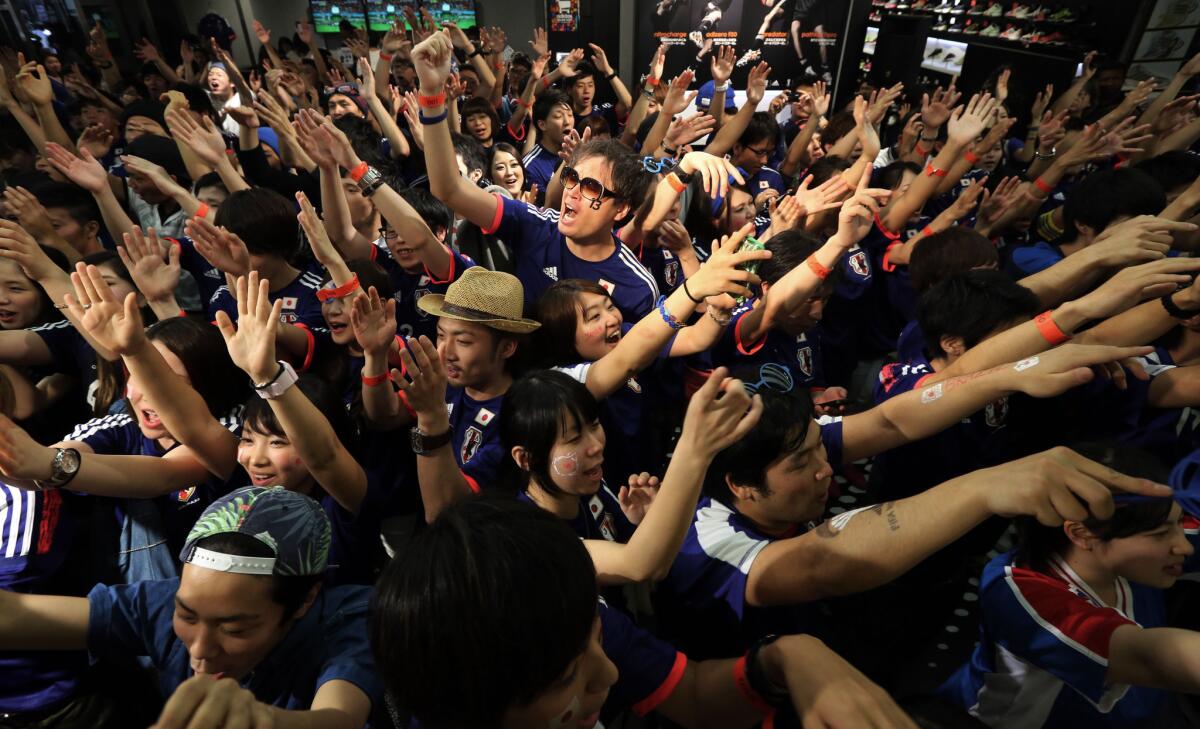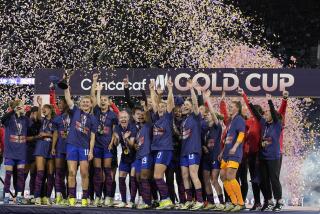Competitiveness off the field gives some World Cup losers a win

If national pride is a bit bruised among Bosnians, Japanese and the English after their early defeats at the World Cup soccer tournament, they can take heart from their victories in the real “competitiveness” contest off the field.
The World Economic Forum, the global finance group that stages the annual gathering of the rich and influential in Davos, Switzerland, has put the 32 national teams competing in the 2014 World Cup in Brazil to the test on broader measures of their success in creating open markets and fair play in the international trade arena.
The socioeconomic World Cup referees crunch the numbers for each country’s performance in gender equality, technological readiness, trade openness and competitiveness. Though the results are mostly a predictable show of developed countries outperforming the Third World entries, some of the nations that were unable to prevail in their soccer match-ups can salve their battered egos with the knowledge that they go home to the more fair and functional country.
Bosnia-Herzegovina made its debut in the world’s most-watched sporting event this year, a victory in itself, although the former Yugoslav republic lost to powerhouse Argentina, 2-1, on Sunday. Still, the small Balkan country that was ravaged by war less than two decades ago bested the Argentines, 3-0, in the Davos test of global economic competitiveness.
England lost to Italy, 2-1, on Saturday but rest assured that its economy is more open and globally integrated than the Italians on every count.
Ivory Coast beat Japan, 2-1, on Saturday. But the African nation got pounded by the Land of the Rising Sun on the social and economic indicators, having scored the lowest among World Cup nations in the Davos calculations.
South Korean and Russian footballers dueled to a 1-1 draw on Tuesday, but the Kremlin’s team scored below their Pacific neighbors in three of the four measures, scoring above Seoul only in gender equality.
Switzerland, where the World Economics Forum monitors global development trends, won its Sunday match with Ecuador, 2-1, and blanked the Latin American country on the economic tests.
There was no consolation for some teams on or off the field. Unsurprisingly, Germany beat Portugal, 4-0, in both their Monday opener and on the economic front. Greece got beat by Colombia, 3-0, on Saturday and by the same score in the Davos calculation. Iran and Nigeria drew, 0-0, on Monday and 2-2 in the economics test.
Perhaps most ignobly, defending World Cup champion Spain lost to the Netherlands, 5-1, on Friday and to Chile, 2-0, on Wednesday, having additionally been slightly outscored by the Chileans on the global competitiveness scale and crushed by the Dutch on all four Davos measures.
One in four Spaniards is out of work as the country struggles through a fifth year of recurring recession. Might the stunning World Cup losses add to Spain’s employment woes if the national team managers get sacked?
Follow @cjwilliamslat for the latest international news 24/7
More to Read
Start your day right
Sign up for Essential California for news, features and recommendations from the L.A. Times and beyond in your inbox six days a week.
You may occasionally receive promotional content from the Los Angeles Times.







